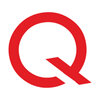Senior Client Partner
20+ Senior Client Partner Interview Questions and Answers

Asked in Access Healthcare

Q. What is Journal Entry of Interest, Depreciation, 2. Tell me Reconciliations Statements 3. R2R, P2P
Journal Entry is a record of financial transactions. Depreciation is the decrease in value of an asset over time. Reconciliation Statements are used to compare financial records. R2R and P2P are accounting processes.
Journal Entry is a record of financial transactions in chronological order
Depreciation is the decrease in value of an asset over time due to wear and tear or obsolescence
Reconciliation Statements are used to compare financial records to ensure accuracy and identif...read more

Asked in Access Healthcare

Q. What is the difference between GC and GE modifiers?
GC and GE modifiers are used in Medicare billing to indicate the level of supervision provided by a physician.
GC modifier is used to indicate that a service was performed under the general supervision of a physician
GE modifier is used to indicate that a service was performed under the direct supervision of a physician
GC modifier is used for services that do not require the physical presence of a physician
GE modifier is used for services that require the physical presence of a...read more
Senior Client Partner Interview Questions and Answers for Freshers

Asked in Access Healthcare

Q. What is the appeal and reconsideration process, how do they differ, and why is it necessary to send both?
Appeal and recon are distinct processes in client relations, each serving unique purposes in addressing client needs.
Appeal: A formal request to reconsider a decision, often used in cases of denied claims or services.
Example: A client may appeal a denied insurance claim by providing additional documentation.
Recon: Short for reconciliation, it involves reviewing and resolving discrepancies in accounts or transactions.
Example: A client may request a recon to clarify billing err...read more

Asked in Access Healthcare

Q. What is payment posting?
Payment posting is the process of recording and reconciling payments received from patients or insurance companies.
It involves entering payment information into the billing system
Verifying that the payment matches the amount owed
Applying the payment to the correct account or invoice
Identifying and resolving any discrepancies or errors
Examples include posting payments for medical services, rent, or utilities

Asked in Access Healthcare

Q. What questions were asked regarding the authorization denial?
Questions about authorization denial often focus on reasons, processes, and resolution strategies.
What specific reasons were provided for the authorization denial?
Were there any missing documents or information that led to the denial?
How does the denial align with the client's policy or guidelines?
What steps can be taken to appeal or rectify the denial?
Can you provide examples of similar cases and their outcomes?

Asked in Access Healthcare

Q. What is meant by independent historian?
An independent historian is a historian who is not affiliated with any institution or organization.
Independent historians conduct research and write about historical events without any institutional or organizational influence.
They may work as freelance historians or as academics who choose to work independently.
Independent historians may have more freedom to pursue unconventional or controversial topics.
Examples of independent historians include Howard Zinn, David McCullough...read more
Senior Client Partner Jobs




Asked in Access Healthcare

Q. What about the medical billing or healthcare department
Medical billing is a crucial process in healthcare, ensuring accurate claims submission and reimbursement for services rendered.
Claims Submission: Medical billing involves submitting claims to insurance companies for services provided, ensuring all necessary codes and documentation are included.
Coding Accuracy: Proper coding (ICD-10, CPT) is essential for accurate billing; for example, a wrong code can lead to claim denials.
Patient Billing: After insurance processes the claim...read more

Asked in Access Healthcare

Q. What is bundled denial?
Bundled denial refers to the denial of multiple medical procedures that are considered part of a larger bundle of services.
Bundled denial occurs when multiple medical procedures are denied because they are considered part of a larger bundle of services.
This is often seen in cases where a patient undergoes a surgery and multiple procedures are performed during the same operation.
Insurance companies may deny payment for certain procedures if they are considered part of the bund...read more
Share interview questions and help millions of jobseekers 🌟


Asked in ICICI Bank

Q. What is your preferred location?
Pune is my preferred location due to its pleasant climate, rich culture, and ample job opportunities.
Pune has a moderate climate throughout the year, making it comfortable to live in.
The city has a rich cultural heritage, with numerous historical sites and festivals.
Pune is a hub for IT and manufacturing industries, providing ample job opportunities.
The city has a good education system, with several renowned universities and colleges.
Pune is well-connected to other major citi...read more

Asked in Access Healthcare

Q. What are the different types of denials, and can you explain them in detail?
Types of denials in client partnerships include authorization, eligibility, medical necessity, and timely filing denials.
Authorization denials occur when services are provided without proper approval from insurance.
Eligibility denials happen when the patient's insurance coverage is not active or does not cover the service.
Medical necessity denials occur when the service provided is not deemed medically necessary by the insurance.
Timely filing denials happen when claims are no...read more

Asked in Access Healthcare

Q. Explain adjustment reason code 51.
Adjustment reason code 51 is used for non-covered services because the service is not deemed a medical necessity.
Adjustment reason code 51 is used when a service is not covered because it is not considered medically necessary.
This code is often used by insurance companies to explain why they are not paying for a specific service.
Providers may receive this code when submitting claims for services that are not deemed essential for the patient's health.
Examples of services that ...read more

Asked in Access Healthcare

Q. What are the patient's responsibilities?
Patient responsibilities refer to the actions and behaviors expected from individuals seeking medical care.
Following treatment plans as prescribed by healthcare providers
Providing accurate medical history and information
Adhering to appointment schedules
Informing healthcare providers of any changes in symptoms or condition
Respecting healthcare staff and facilities

Asked in Access Healthcare

Q. Describe the new MDM table.
The new MDM table is designed to store master data related to customers, products, and suppliers.
The table will have columns for unique identifiers, names, addresses, and contact information.
It will also include columns for classification, such as customer type or product category.
The table will be linked to other tables in the database to ensure data consistency and accuracy.
The MDM table will be regularly updated and maintained to ensure data quality and completeness.

Asked in Access Healthcare

Q. Explain authentication and types in detail.
Authentication (Auth) is the process of verifying the identity of a user or system. There are various types of authentication methods.
Authentication is crucial for ensuring security in systems and applications.
Types of authentication include password-based, biometric, two-factor authentication, and OAuth.
Examples: Password-based authentication requires users to enter a password to access their accounts. Biometric authentication uses fingerprints or facial recognition for veri...read more

Asked in Access Healthcare

Q. Icd coding guidelines and sequencing
ICD coding guidelines and sequencing are essential for accurate medical coding and billing.
ICD coding guidelines provide rules for assigning diagnostic codes to patient encounters
Sequencing involves determining the primary diagnosis code based on the patient's condition
Proper sequencing ensures accurate reimbursement and data analysis
For example, in cases of pneumonia and sepsis, the primary diagnosis should be sequenced first

Asked in Senco Gold

Q. Tell me about yourself.
Experienced Senior Client Partner with a strong background in strategic partnerships and client relationship management.
Over 10 years of experience in client management, focusing on building long-term relationships.
Successfully led a team that increased client retention rates by 30% through personalized service.
Expert in identifying client needs and aligning them with company solutions, resulting in a 25% increase in upsell opportunities.
Strong background in negotiating contr...read more

Asked in Access Healthcare

Q. Non covered and its types
Non-covered refers to services not included in an insurance policy. Types include cosmetic procedures, experimental treatments, and certain elective surgeries.
Non-covered services are typically outlined in the insurance policy's exclusions section.
Examples of non-covered services may include cosmetic procedures like teeth whitening, experimental treatments not approved by the FDA, and elective surgeries like plastic surgery for purely aesthetic reasons.

Asked in Access Healthcare

Q. MDM table with examples
MDM table is a master data management table that stores key information about entities in an organization.
MDM tables store unique identifiers for entities such as customers, products, or employees.
They also store attributes related to these entities, such as names, addresses, and contact information.
MDM tables help ensure data consistency and accuracy across different systems in an organization.
Examples of MDM tables include Customer_Master, Product_Master, and Employee_Maste...read more

Asked in Access Healthcare

Q. Can you provide examples of when to use Modifier 25?
Modifier 25 indicates a significant, separately identifiable evaluation and management service on the same day as a procedure.
Used when a patient receives both a procedure and an evaluation on the same day.
Example: A patient has a minor surgical procedure and also requires a separate evaluation for a different issue.
Modifier 25 is applied to the E/M service code to indicate it was distinct from the procedure.
Important for proper billing and reimbursement to avoid denial of cl...read more

Asked in Access Healthcare

Q. Out of network provider
An out of network provider is a healthcare provider that does not have a contract with a particular health insurance plan.
Out of network providers may result in higher out-of-pocket costs for patients
Patients may need to submit claims themselves for reimbursement
Examples include seeing a specialist who is not in-network with your insurance plan
Interview Questions of Similar Designations
Interview Experiences of Popular Companies







Reviews
Interviews
Salaries
Users

















